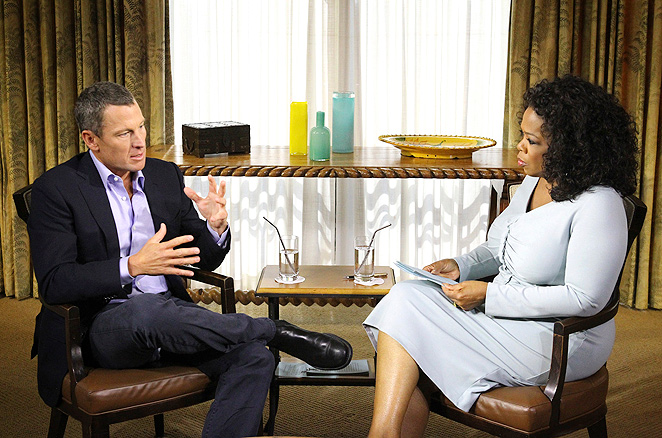In this decision in today’s New York Law Journal (free reg.), Justice Catherine Bartlett, sitting in Orange County, does an exploration of sanctions in New York, and the availability of legal fee recoupment for a frivolous case. Tort “reform” critics like to complain that frivolous suits are a reason that restrictions should be put on suits, such as a loser pays type of system, though this obviously impacts legitimate suits as well.
But here we see the system in action: In Seeley v. Emerald Point the plaintiff was clobbered from behind with a shovel while in the parking lot of the Emerald Point bar. But one of the defendants was an individual that the plaintiff simply couldn’t tie to the assault, no matter how hard he tried. As summarized by the court:
Plaintiff settled his claim as against Emerald Point and pursues an action against the remaining defendants, one of which is Sean Frey, who plaintiff alleges assisted in his assault. At no time has plaintiff been able to identify Mr. Frey as his attacker, and no witness testified or came forward demonstrating that Mr. Frey was in any way connected with the attack on Mr. Seeley. In fact, Mr. Frey claims that while he was present at the bar that evening, he had no involvement whatsoever in any assault. Mr. Frey testified that he was not employed or in any way connected with Emerald Point other than as a patron.
The Court didn’t just toss the suit against Mr. Frey, but when on to excoriate the suit against him, and discussed the two standards for punitive sanctions in New York; one is a Rule of Court (for frivolous conduct) and the other legislatively derived (for frivolous suits). This is a long block quote, which generally sucks in a blog posting. But for practitioners (and policy makers), this is how it works in New York (I’ve reformatted/removed the citations to make it more readable):
Turning to the issue of costs and sanctions, the Court notes that conduct is frivolous and can be sanctioned under 22 NYCRR 130-1.1 if it is “completely without merit in law and cannot be supported by a reasonable argument for an extension, modification or reversal of existing law” or it is “undertaken primarily to delay or prolong the resolution of the litigation, or to harass or maliciously injure another” (see Stow v Stow, Matter of Gordon v Marrone, Tyree Bros. Envtl. Servs. v Ferguson Propeller, all in the 2nd Dept.). “Making claims of colorable merit can constitute frivolous conduct within the meaning of 22 NYCRR 130-1.1 if ‘undertaken primarily to delay or prolong the resolution of the litigation, or to harass or maliciously injure another’.” Specifically, Section 130-1.1 of the Rules of the Chief Administrator of the Courts states in pertinent part:
(a) The court, in its discretion, may award to any party in any civil action or proceeding before the court, except where prohibited by law, costs in the form of reimbursement for actual expenses reasonably incurred and reasonable attorney’s fees, resulting from frivolous conduct as defined in this Part.
(c) For the purposes of this Part, conduct is frivolous if:
(2) it is undertaken primarily to delay or prolong the resolution of the litigation, or to harass or maliciously injure another; In determining whether the conduct undertaken was frivolous, the court shall consider, among other issues, (1) the circumstances under which the conduct took place, including the time available for investigating the legal or factual basis of the conduct; and (2) whether or not the conduct was continued when its lack of legal or factual basis was apparent, should have been apparent, or was brought to the attention of counsel or the party.
As expressed in Park Health Center v Country Wide Ins. Co., (N.Y.City Civ.Ct.,2003):
“In determining whether the conduct undertaken was frivolous, the court shall consider, among other issues, the circumstances under which the conduct took place, including the time available for investigating the legal and factual basis for the conduct, and whether or not the conduct was continued when its lack of legal or factual basis was apparent, should have been apparent, or was brought to the attention of counsel or the party.” ( Id.) [22 NYCRR 130-1.1(c)].
While the factors listed above are precatory in determining sanctionable conduct, “what remedy [to impose] is dictated by considerations of fairness and equity.” (Levy v. Carol Management Corp. 1st Dept.). Moreover, “[s]anctions are retributive in that they punish past conduct. They are also goal oriented, in that they are useful in deterring future frivolous conduct not only by the particular parties, but also by the bar at large. The goals include preventing the waste of judicial resources, and deterring vexatious litigation and dilatory or malicious litigation tactics. citation omitted” (Levy,). The measure of sanctions should be proportionate to the amount sought in the lawsuit, the culpability of the party’s conduct and prejudice to the adversary. ( See Vicom v. Silverwood, 4th Dept.).
In the instant case, it is clear from the submissions that the evidence demonstrated that Mr. Frey had no connection with the assault on plaintiff. Mr. Seeley never identified his attacker, and the evidence, which is unrefuted, demonstrates that Frey was not employed by Emerald Point nor did he participate in any assault. Plaintiffs were given multiple opportunities to discontinue the action against Frey, even in light of the compelling evidence demonstrating his non-participation. Plaintiffs failed to do so, and such conduct can be construed as nothing less than frivolous conduct. Plaintiffs’ counsel’s conduct in this matter demonstrates a repeated disregard for proper procedure and the law, and as such, plaintiffs’ conduct is frivolous.
CPLR 8303-a calls for the award of “costs and reasonable attorney’s fees not exceeding ten thousand dollars” against a party, his attorney, or both, who are found to have brought a frivolous action in bad faith or as a means of “harass[ing]” the successful adversary. A similar alternate imposition of costs and financial sanctions is available under the Rules of the Chief Administrator of the Courts for frivolous conduct in pursuit of such litigation (22 NYCRR Subpart 130-1). Once there is a finding of frivolousness, sanction is mandatory ( Grasso v. Mathew, 164 A.D.2d 476, 564 N.Y.S.2d 576, lv. denied), especially in the wake of frivolous defamation litigation (Mitchell v. Herald Co., 137 A.D.2d 213, 529 N.Y.S.2d 602, appeal dismissed). Nyitray v New York Athletic Club in City of New York, 1st Dept., 2000).
The Court hereby directs that a hearing shall be held on September 8, 2011 at 9:30 a.m. at Orange County Government Center, Courtroom #4 for the purposes of taking testimony to ascertain the time and expenses of defendant Frey in defending this action and reasonable attorney’s fees.
It would be nice, of course, to one day find a decision where a judge sanctions a defendant for frivolous defenses. Perhaps that day will come.
 Having now confessed to Oprah about doping in order to win seven Tour de France titles, Lance Armstrong is obviously in a heap of legal troubles. Most of those seem to involve his perjury (criminal), defamation of others when he called them liars for calling him a cheat (civil), and a slew of contractual issues regarding his sponsors.
Having now confessed to Oprah about doping in order to win seven Tour de France titles, Lance Armstrong is obviously in a heap of legal troubles. Most of those seem to involve his perjury (criminal), defamation of others when he called them liars for calling him a cheat (civil), and a slew of contractual issues regarding his sponsors.

